Keynotes
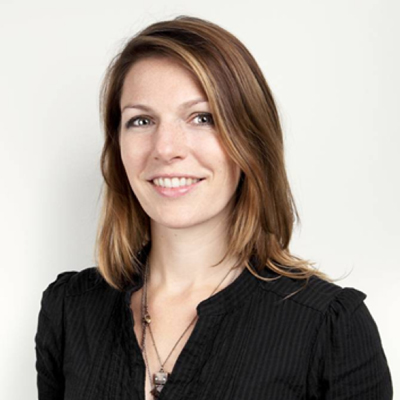
Kate Darling
Research Specialist, Massachusetts Institute of Technology Media Lab
Robots are taking increasingly bigger roles in life and business moving well beyond manufacturing and into transportation, education, medicine and care for the elderly. But ethics and law haven’t caught up. Dr. Kate Darling, a pioneer in the fields, is helping quicken the pace.
A leading expert in robot ethics, she is a researcher at the Massachusetts Institute of Technology Media Lab where she investigates social robotics and conducts experimental studies on human-robot interaction. Kate explores the emotional connection between people and life-like inventions, seeking to influence technology design and policy direction. Her writing and research anticipate difficult questions that lawmakers, engineers and the wider public must address as human-robot relationships evolve in the coming decades.
While her background is in intellectual property, law and economics, Kate’s passion for technology and robots led her to interdisciplinary fields. After co-teaching a robot ethics course at Harvard Law School with the renowned Professor Lawrence Lessig, she now increasingly works at the intersection of law and robotics, with a focus on legal and social issues. Kate is a fellow at the Harvard Berkman Center for Internet & Society and the Yale Information Society Project, and is also an affiliate at the Institute for Ethics and Emerging Technologies.
Kate’s work has been featured in the BBC, The Guardian, The Boston Globe, CBC, WIRED, and more. She has authored multiple academic publications, and is a contributing writer to Robohub and IEEE Spectrum. A compelling and provocative presenter, she speaks and holds workshops covering some of the more interesting developments in the world of robotics, and where we might find ourselves in the future.
Kate graduated from law school with honors and holds a doctorate of sciences from the Swiss Federal Institute of Technology (ETH Zurich). She is the caretaker for several domestic robots, including her twin Pleos, Yochai and Peter.
SESSION: Robot Ethics and the Future of Human-Robot Interaction
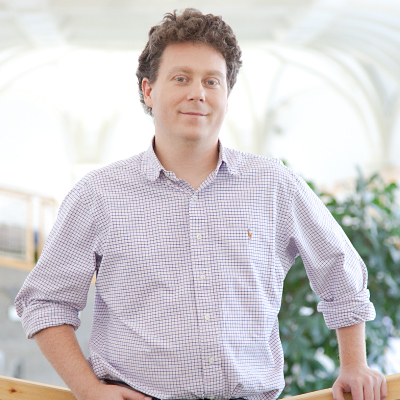
Peter Halacsy
CTO and Co-Founder, Prezi
Peter “HP” Halacsy is the Co-founder and technology leader of Prezi. To be able to build a huge, cloud-based, platform-agnostic document authoring service, Prezi has to influence the future of programming. In light of this HP has strong and provocative opinions such as how (F)RP and declarative programming are changing the way we build interactive applications, and how microservice models are bringing real agility to app development. He is also a big fan of extreme tooling infrastructure to really speed up development cycles.
As an executive manager and co-founder of Prezi, HP believes that organisations should be designed parallel with product, and that super-agile organisations are decentralised and aligned to a higher purpose. He sees that it is a manager’s job to distribute information and push decision making down the tree of command–making themselves more irrelevant , and thus, we need to change how people think and act within an organisation, and make everybody a leader.
HP also co-founded several social organisations. Bridge Budapest aims at boosting the startup community as well as shaping the IT scene in Hungary by showcasing great examples for building, successful global companies. The Hero’s Square initiative strives to eliminate indifference in Hungary by encouraging everyone to stand up and act for others every day. Last but not least, HP co-founded We Are Open, with the goal of improving diversity in the Hungarian workplace, something that was severely lacking but is now beginning to change with over 800 companies signed up and committed to the cause.
His newest gig is to build a new educational system (because educational reforms usually just fail) of schools that are collaboratively designed and implemented by teachers. HP believes teachers should have collective autonomy to make the decisions that influence the success of a school.
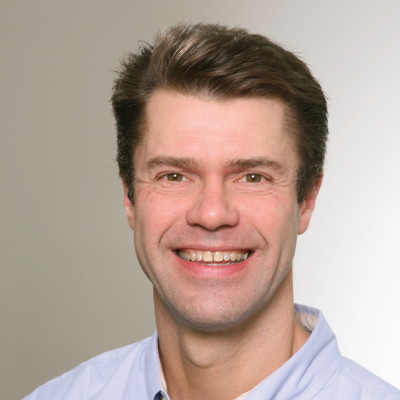
Luke Hohmann
Founder and CEO, Conteneo
Luke Hohmann is the Founder and CEO of Conteneo, Inc. (formerly The Innovation Games® Company). Conteneo’s enterprise software platforms and professional services merge collaboration frameworks, data analytics, and domain expertise to help organisations to optimise decision-making in the areas of strategy, innovation, sales, product development and market research. Conteneo’s diverse clientele range from startups to Fortune 500 enterprises including Adobe, Capital One, PayU, Rackspace, Transamerica and Reed Elsevier among others. These customers use Conteneo’s multidimensional collaboration frameworks to help solve their enduring problems: identifying unmet needs, developing and aligning strategic choices, creating compelling offerings, and improving delivery processes.
Luke is also co-founder of Every Voice Engaged Foundation (EVEF), a nonprofit that that helps citizens, governments and other nonprofit organisations collaborate at scale to solve both technical and wicked problems. EVEF has been a leader in the Participatory Budgeting movement, helping citizens prioritise hundreds of millions of dollars through Budget Games. EVEF has also partnered with The Kettering Foundation to create Common Ground for Action, the first platform for scalable Deliberative Decision Making. Endorsed by both the Agile Alliance and the Scrum Alliance, Luke is thankful for the thousands of colleagues from the Agile Community who have donated their time to EVEF.
The inventor of several patents and the author of four books on topics ranging from organisational behaviour to software architecture and portfolio prioritisation, Luke is an internationally recognised leader in the Agile Community. He co-founded the first Agile Conference in 2003 and has served on the Board of the Agile Alliance, sponsoring the first track devoted to Product Management. Under his leadership Conteneo has conducted market research and strategy services development for the Scrum Alliance and the Agile Alliance. Luke is also the creator of ProductCamp and Playcamp, the world’s largest series of unconferences for Product Managers and Innovation Gamers/Gamestormers.
A former United States National Junior Pairs Figure Skating Champion, Luke likes spending time with his four kids, his wife’s cooking and long runs in the Santa Cruz mountains. Luke is an old school Silicon Valley entrepreneur: instead of building a company to flip, he’s building a company to change the world. Luke’s keynote comes with a warning: after listening to his keynote you might find yourself focused on a higher purpose than just getting a standup meeting finished in 15 minutes.
SESSION: Awesome Superproblems
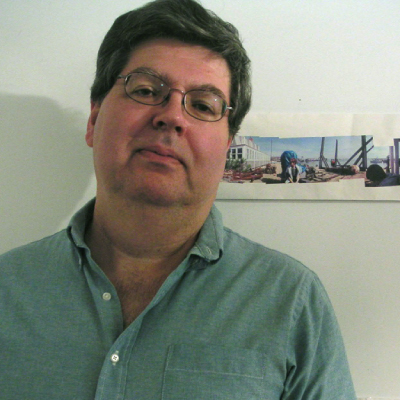
Steve Krug
Usability Consultant & Author, Advanced Common Sense
Steve Krug (pronounced “kroog”) is best known as the author of Don’t Make Me Think: A Common Sense Approach to Web Usability. First published in 2000 and now in its third edition with over 450,000 copies in print, this book has served as most people’s introduction to usability and user experience design.
In 2010, he followed it with the usability testing handbook Rocket Surgery Made Easy: The Do-It-Yourself Guide to Finding and Fixing Usability Problems.
The books were based on the 25+ years he’s spent as a usability consultant for a wide variety of clients like Apple, Bloomberg, IBM, Lexus, NPR, the International Monetary Fund, and many others.
His consulting firm, Advanced Common Sense (“just me and a few well-placed mirrors”) is based just outside Boston, Massachusetts.
Steve currently spends most of his time teaching usability workshops, consulting, and watching old black and white movies from the thirties and forties.
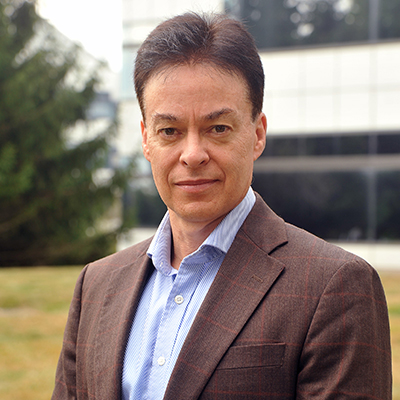
Jeff Smith
CIO, Transformation and Operations, IBM
Jeff Smith is IBM’s Chief Information Officer. Jeff’s mantra as CIO is creating an Agile culture to drive fundamental change and material benefits for IBM. Using the collective wisdom of IBMers to build a new model, Jeff’s organisation is creating loosely coupled and tightly aligned teams that have end to end accountability to deliver business value at a pace vastly improved over what IBM has done in the past. The key principle of that model is that it must support an Agile way of working – and not the other way around. Self-directed teams using diversity of thought will innovate at a greater pace – and create a culture of innovation at scale.
Prior to joining IBM, Jeff was CEO, Suncorp Business Services, where he was responsible for the Group’s technology, analytics, real estate, finance, procurement and BPO/ITO operations and led the technology transformation, integrating the Group’s IT systems and achieving significant improvements in quality, cycle time and cost reduction.
Jeff has thirty years corporate experience and has held senior executive roles in a number of companies including Telstra Corporation and Honeywell.
A native of Ohio, Jeff earned a bachelor’s degree in Applied Science from Miami University and an MBA from San Jose State University. He also served on the Australian Fulbright Commission awarding Australian postgraduate scholarships to US universities.
SESSION: A corporation as big as a small country: Towards an Agile enterprise
